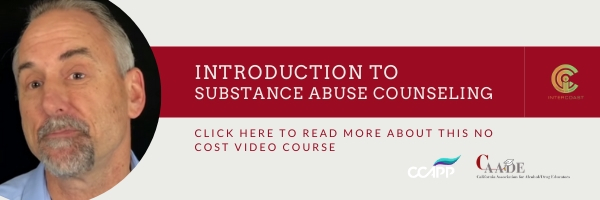Estimated reading time: 3 minutes
Table of contents
As of December 2024, approximately 48 million Americans battle a drug or alcohol addiction (Source: National Survey on Drug Use and Health, December 2024).
This growing need for support is likely one reason the job outlook for addiction counselors is projected to grow by 23% over the next decade—much faster than the national average (Source: U.S. Bureau of Labor Statistics).
Are you considering a career as an addiction counselor? Let’s explore what it takes to pursue this impactful path.
What Does an Addiction Counselor Do?
Addiction counselors work with clients struggling with substance use disorders to create personalized treatment plans and provide ongoing support. Each individual’s journey is unique, so counselors collaborate closely with clients to tailor their recovery plans.
Key Responsibilities of Addiction Counselors:
• Identifying challenges and developing treatment goals.
• Refer clients to support groups and other resources.
• Leading therapy sessions (group and individual).
• Assisting clients with career planning and job searches.
• Maintaining records and reports, including court updates when necessary.
• Meeting with family members to provide guidance and foster support.
Addiction counselors may also arrange medical interventions and long-term care strategies for clients and their families.
Essential Skills for Success as an Addiction Counselor
Working with individuals facing addiction requires specific skills and personal attributes. Some qualities that may contribute to success in this field include:
• Strong listening and communication abilities.
• A genuine desire to help others.
• Emotional resilience and stress management.
• Nonjudgmental attitudes toward client experiences.
• Motivation to inspire long-term change.
It’s also important for counselors to set professional boundaries and maintain self-care to avoid burnout. This career may involve high-stress situations, including working with clients who relapse.
Can Past Experience with Addiction Help?
Individuals in recovery may bring a unique perspective to their work as addiction counselors. Sharing personal insights, when appropriate, can help build trust and understanding with clients. However, anyone considering this career should evaluate whether they can maintain their own recovery in a professional setting.
Education and Training Requirements
Depending on your state, you may need varying levels of education, training, and licensure to become an addiction counselor. Requirements typically include:
1. Education: Programs range from Associate degrees to advanced graduate degrees. InterCoast provides training in Substance Use Disorder Counseling and other related fields. Contact us to learn more about our certificate and degree programs.
2. Supervised Training: A set number of clinical training hours completed under supervision.
3. Licensing Exams: You may need to pass a state-approved certification or licensing exam to work in the field.
4. Background Checks: Most states require a clean record, including felony and child abuse checks.
InterCoast offers certificate programs designed to prepare students for certification exams with third-party agencies.
Career Paths for Addiction Counselors
Addiction counselors can work in various settings, including:
• Residential treatment centers.
• Outpatient recovery programs.
• Hospitals and healthcare facilities.
• Schools and universities.
• Government or community organizations.
You may also choose to specialize in a specific type of addiction or work with particular demographics, such as teenagers or veterans.
Interested in Becoming an Addiction Counselor?
Pursuing a career as an addiction counselor may offer an opportunity to support individuals in transformative ways. With appropriate training and credentials, you could play a vital role in helping others navigate their recovery journey.
Ready to learn more about InterCoast’s programs? Click here today to explore our addiction counseling training options and connect with our team.


This is an INCREDIBLE article! Thank you..
Thanks, helpful!!!
how to be able to have better communication skills as a LCDC-I
Amazing I wondered if I would be able to work in this field with past issues. I have q2 credits left until I graduate